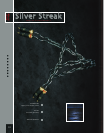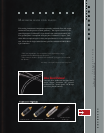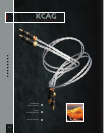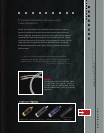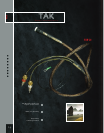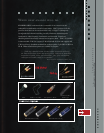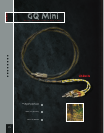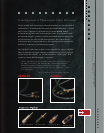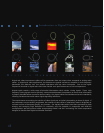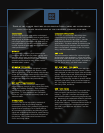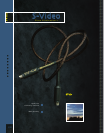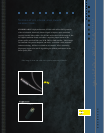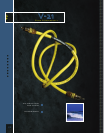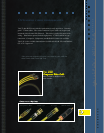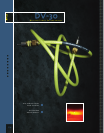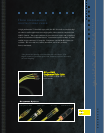
Digital and video interconnect cables call for parameters that are unique when compared to analog audio
cables. In digital and video applications, the solutions are geared towards an emphasis in wide frequency
bandwidth, low dielectric loss, low parallel capacitance and low series inductance. Due to the higher
frequencies involved in digital audio and video transfer such specifications are of critical importance.
Digital signals contain a wide range of encoded information which include timing signals. These high
frequency timing signals must be precisely communicated between components to ensure that information
is properly decoded before conversion back to analog. Our digital cables are manufactured to strict standards,
reducing variations that could induce signal degrading reflections.
The requirements surrounding the transfer of video signals are as similarly demanding as those of digital. If
the parameters are not carefully engineered, the creation of color shifts or imbalances, losses in brightness or
contrast and loss of sharpness detail, are common. Our digital/video cables have been optimized for both
existing and emerging High Definition TV standards, and are available in component and RGB+HV
configurations. We also produce cables incorporating HDMI™ and DVI™ technology for those components
designed to handle these digital multimedia interfaces.
Introduction to Digital/Video Interconnects
Music in Harmony with Science
18



